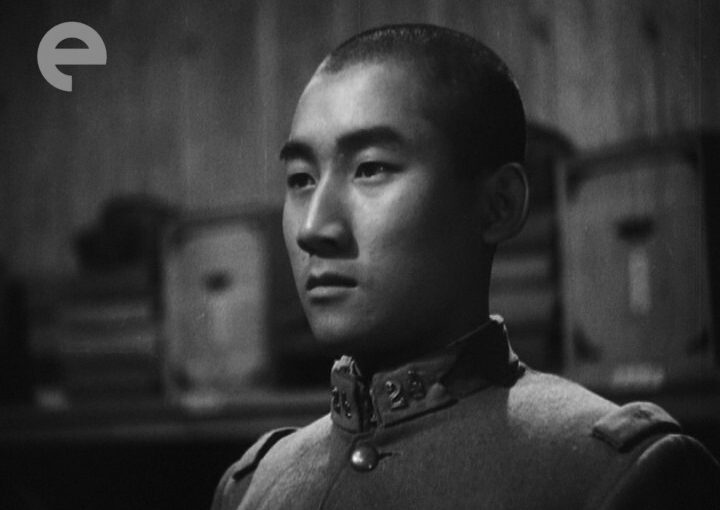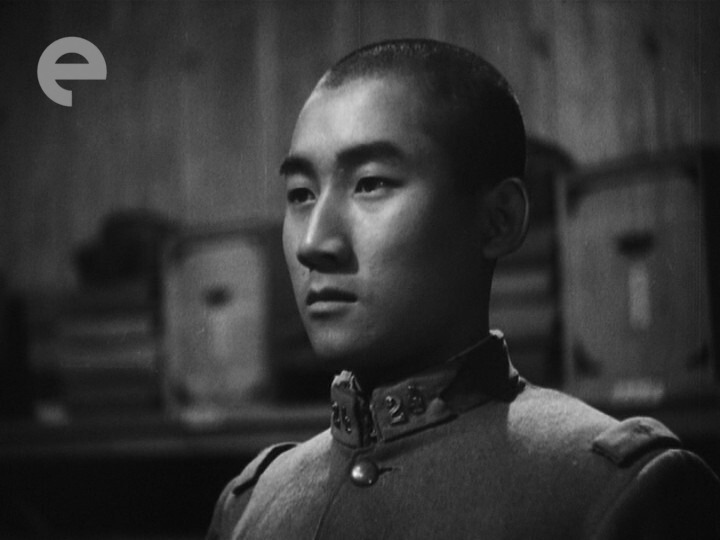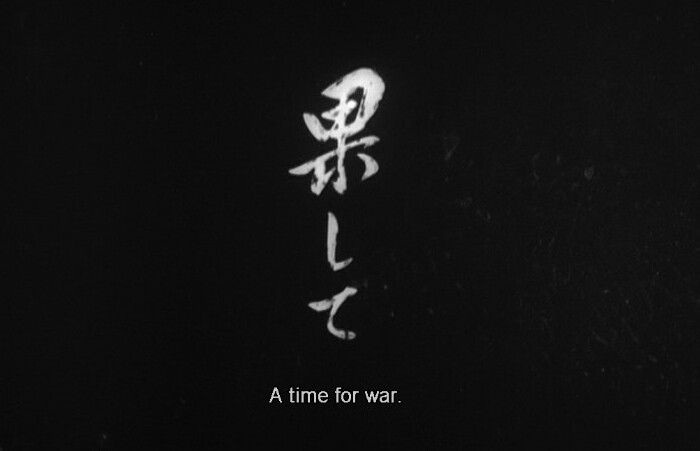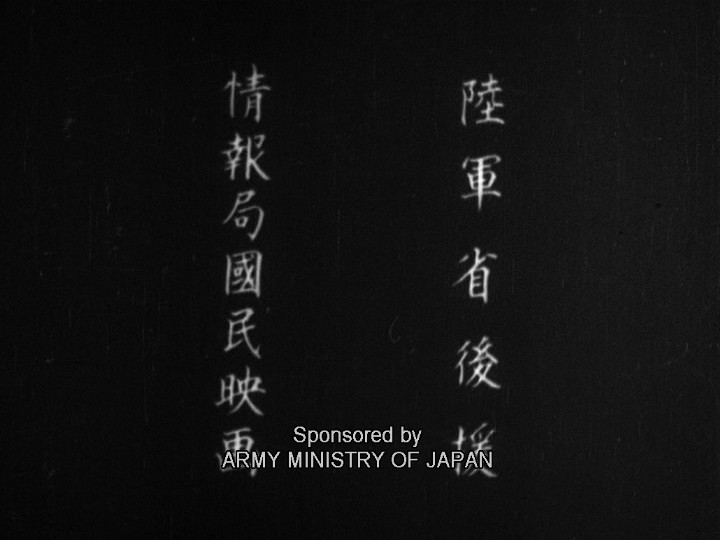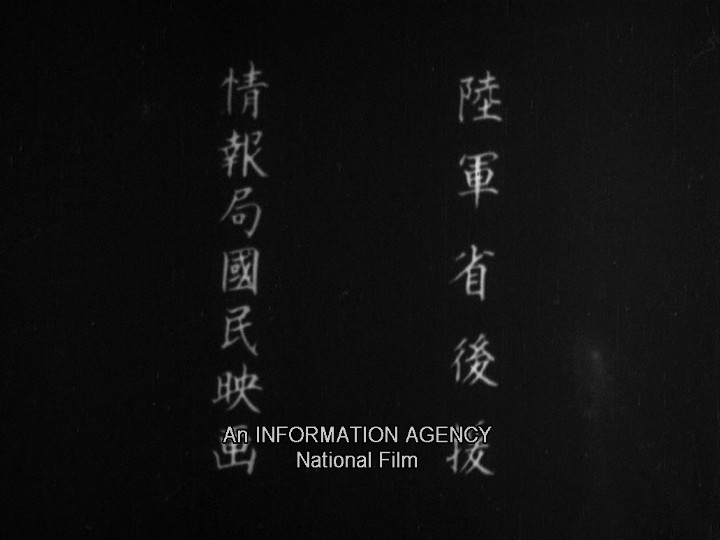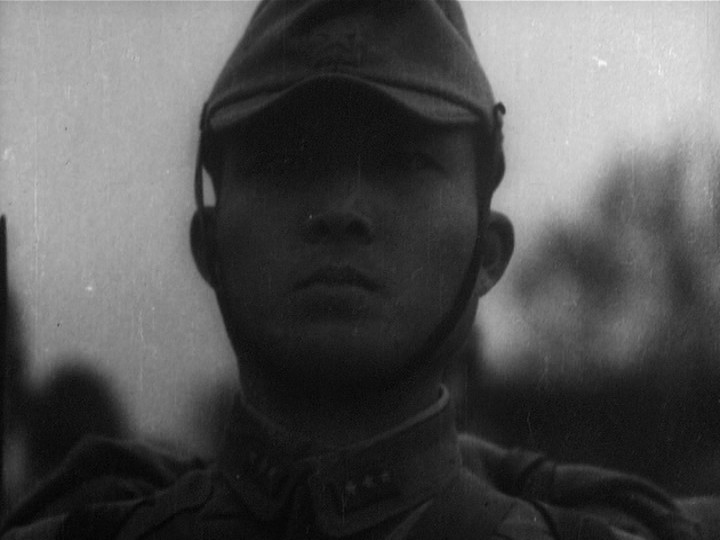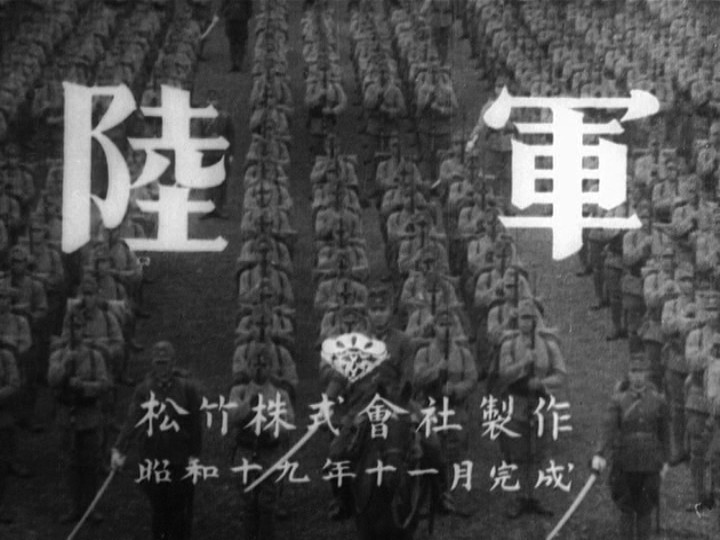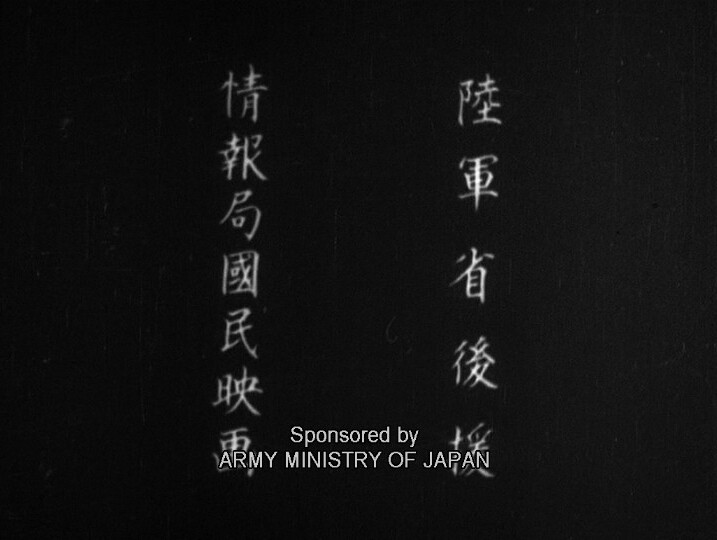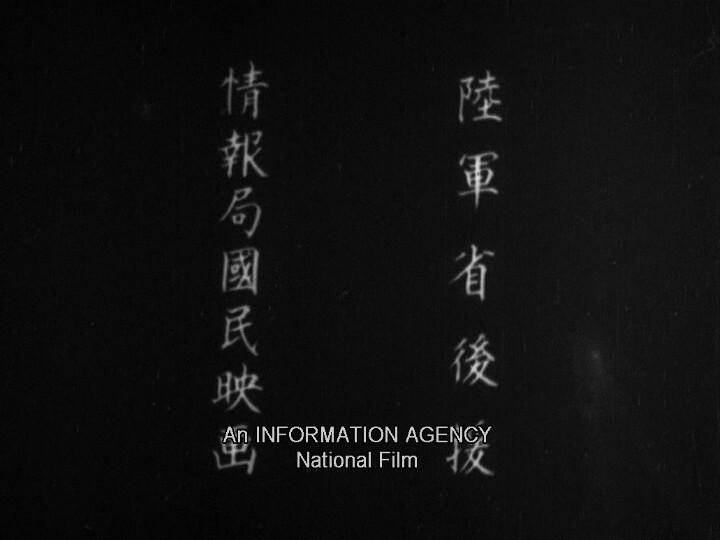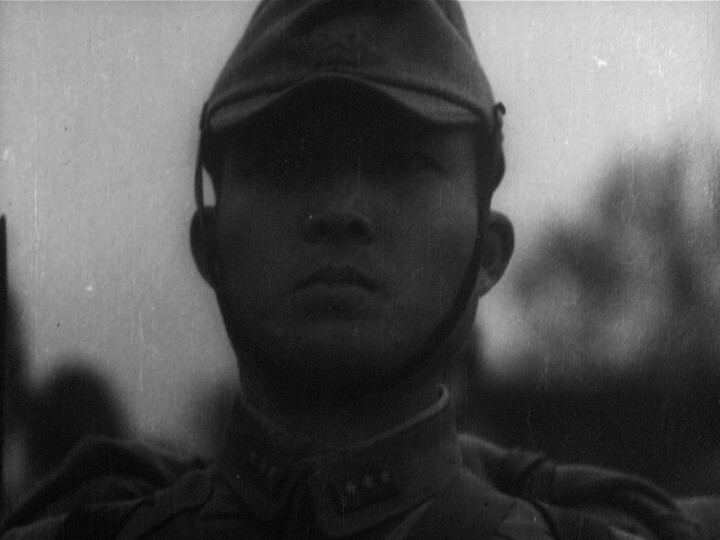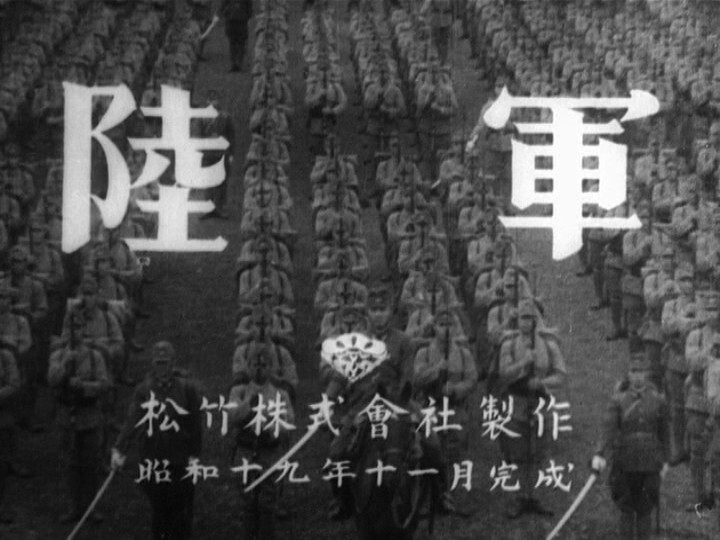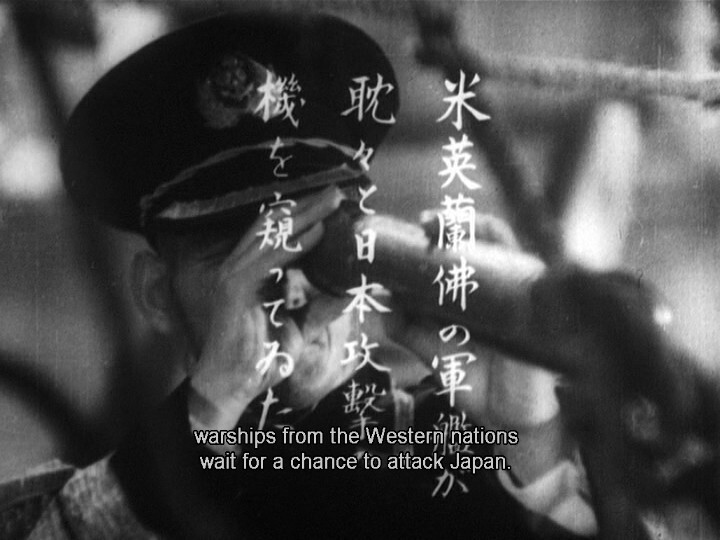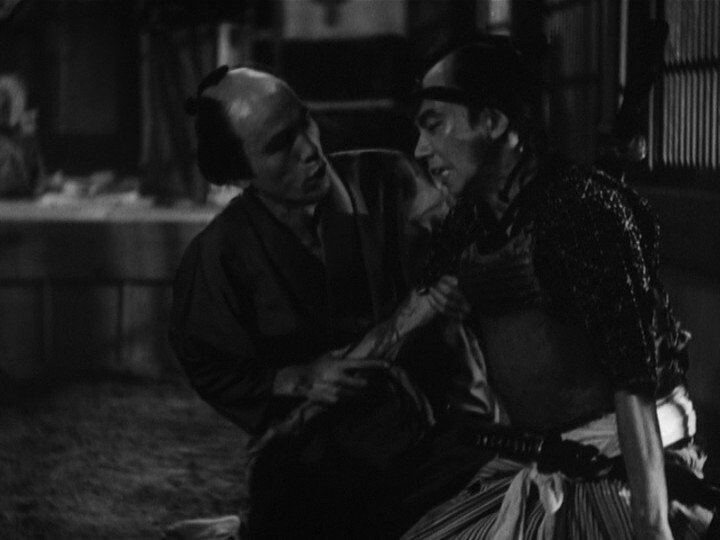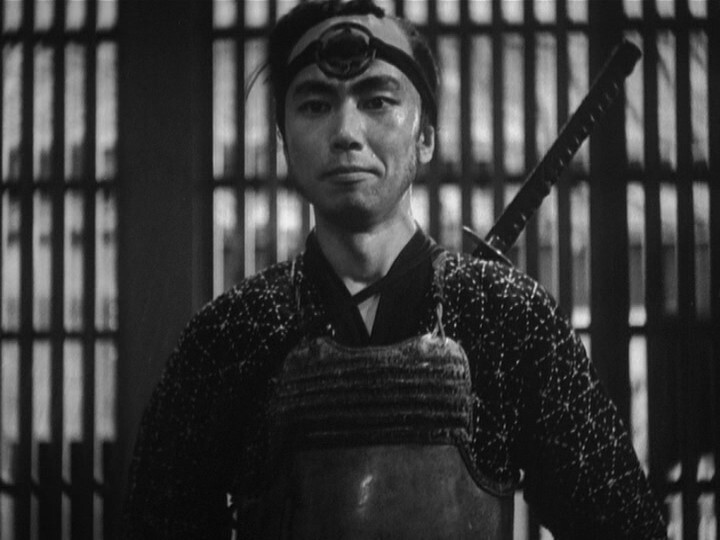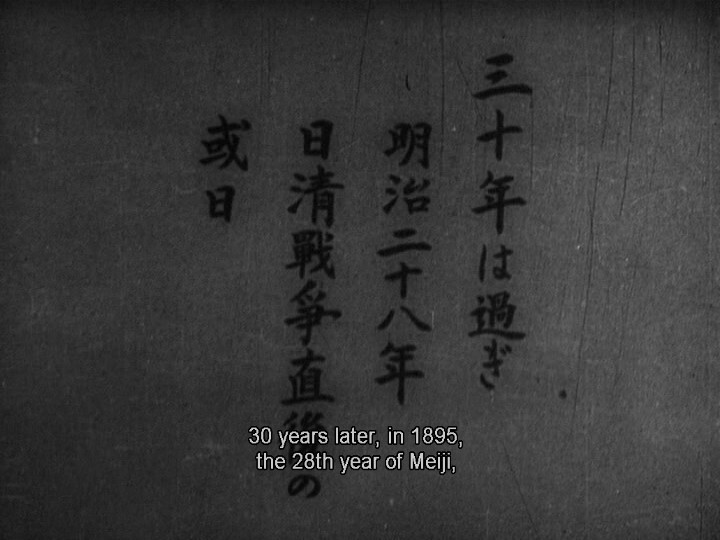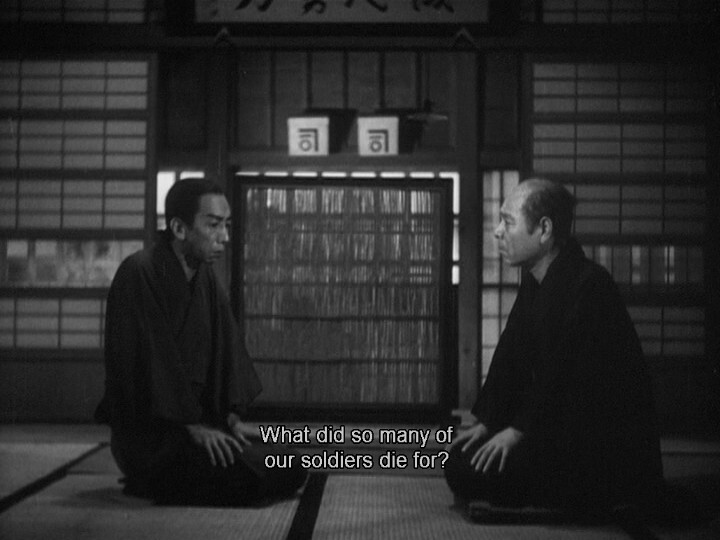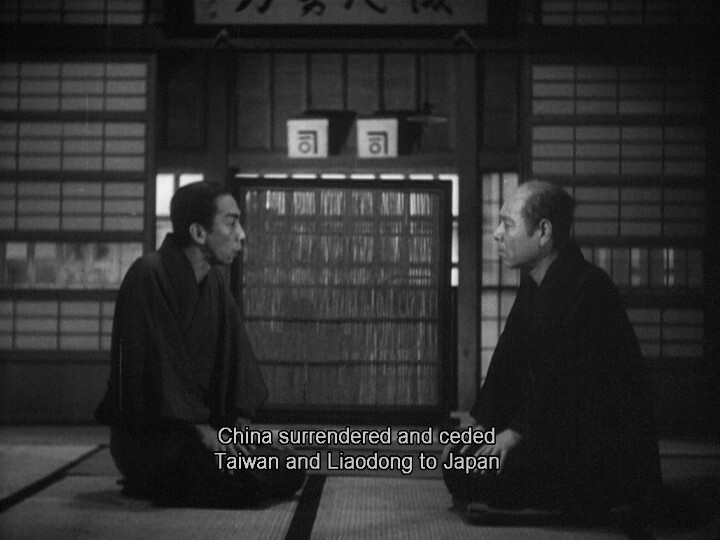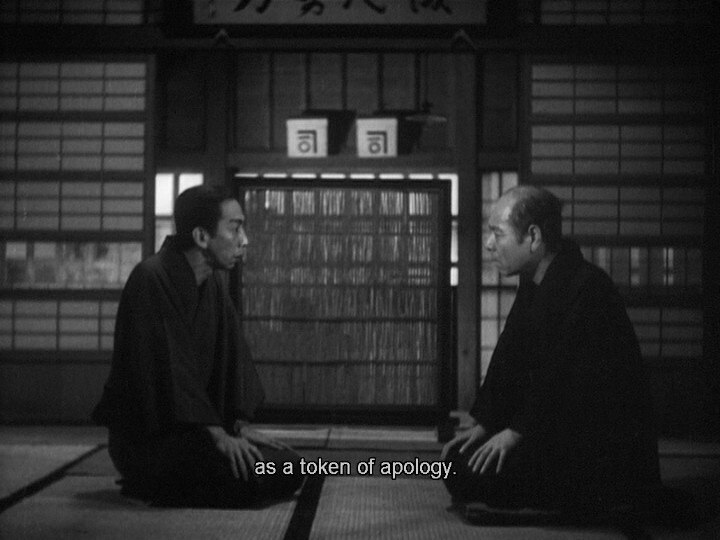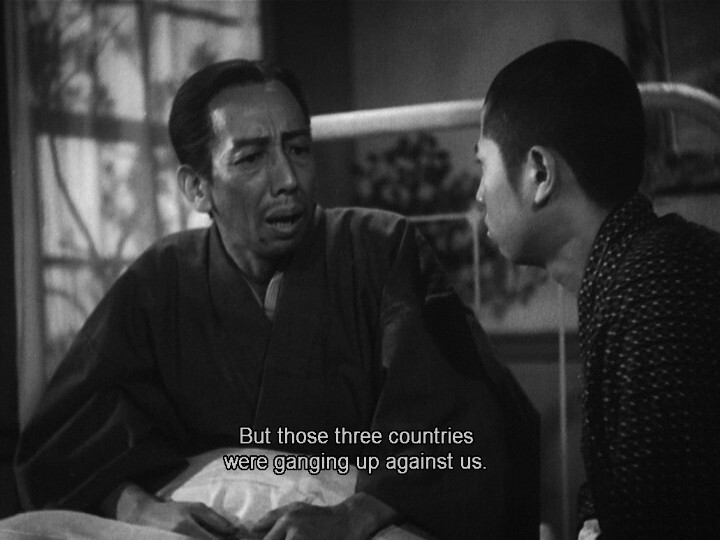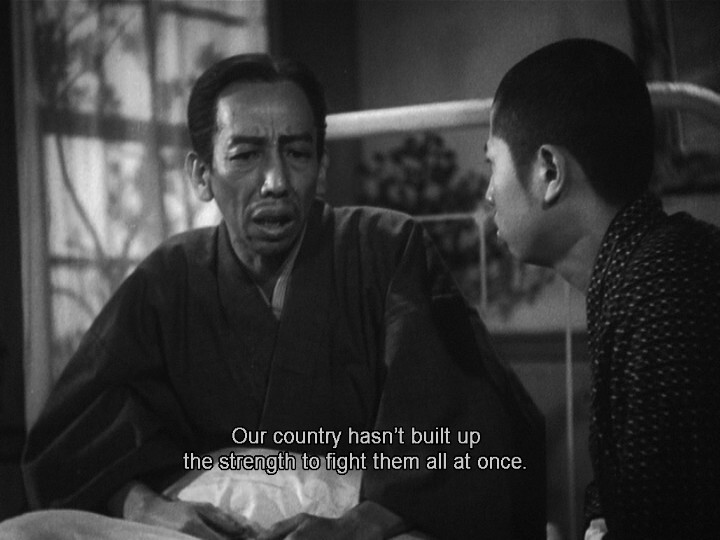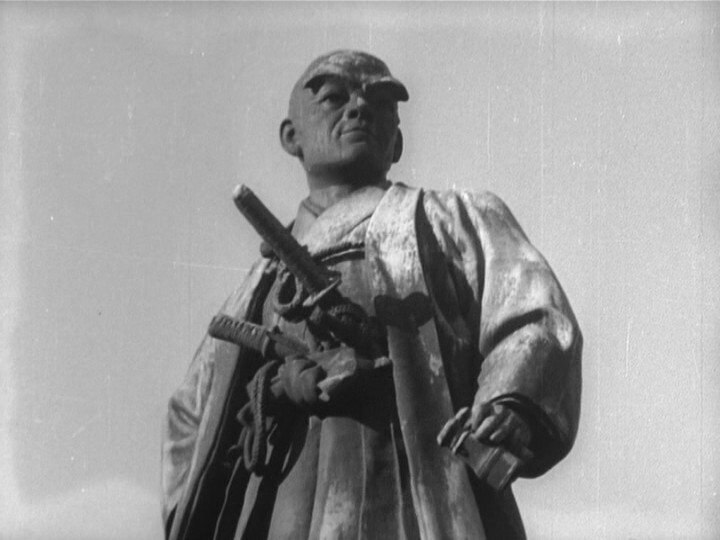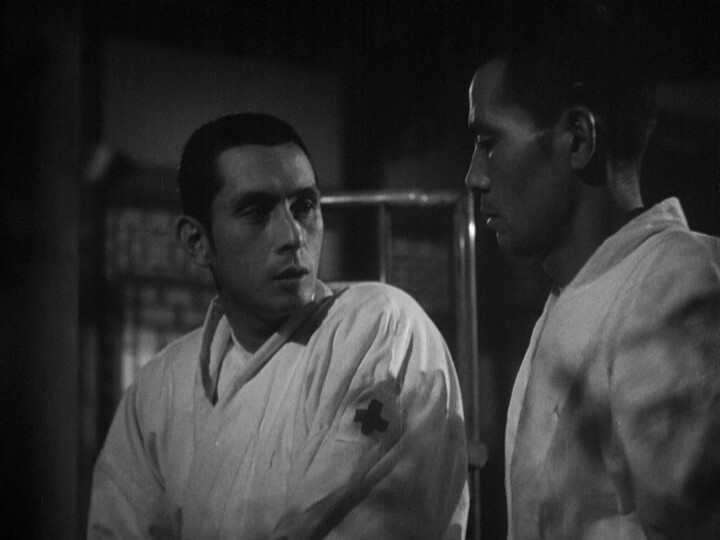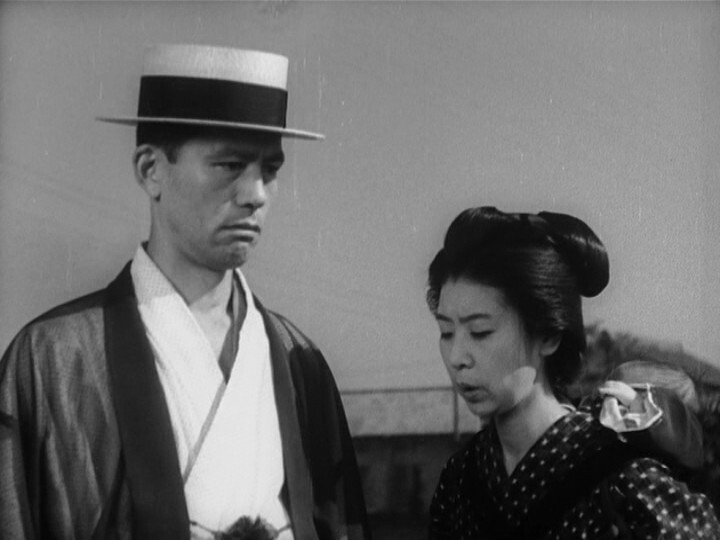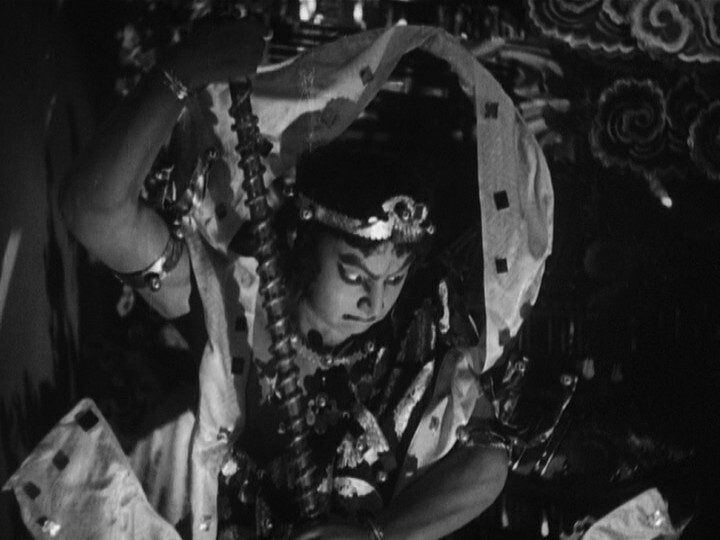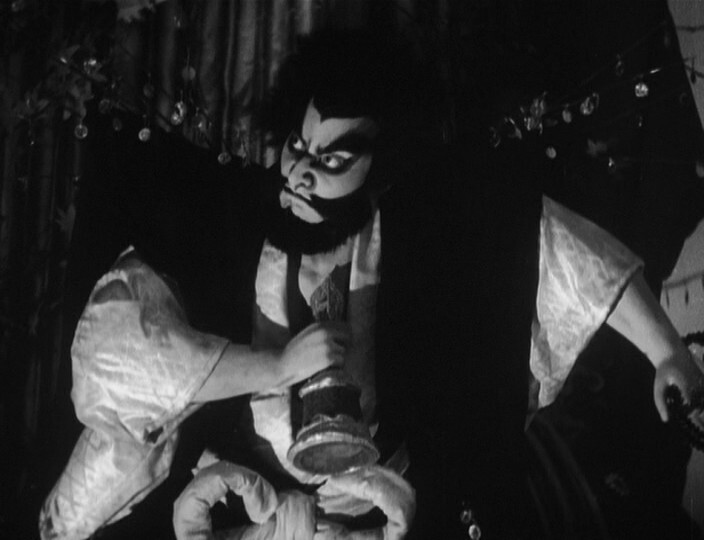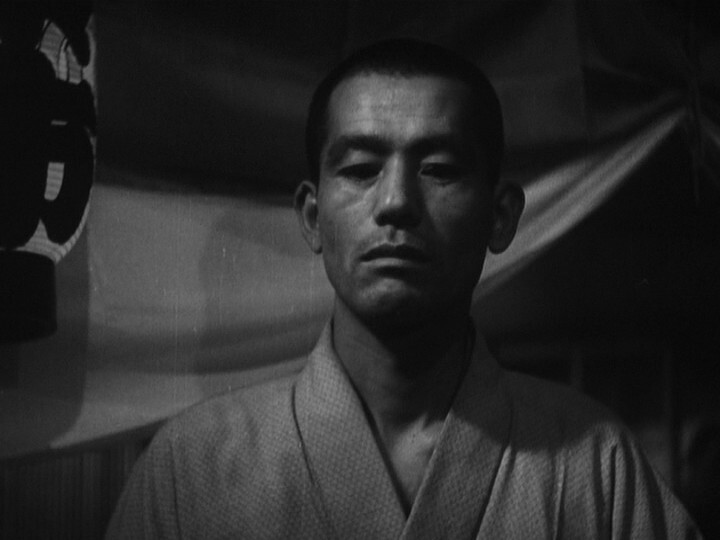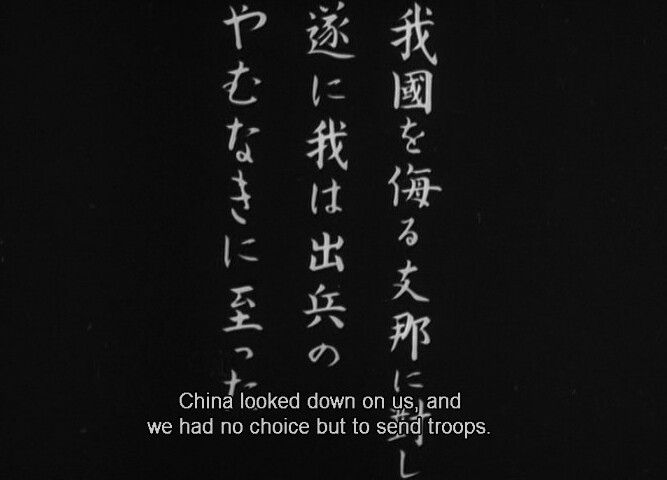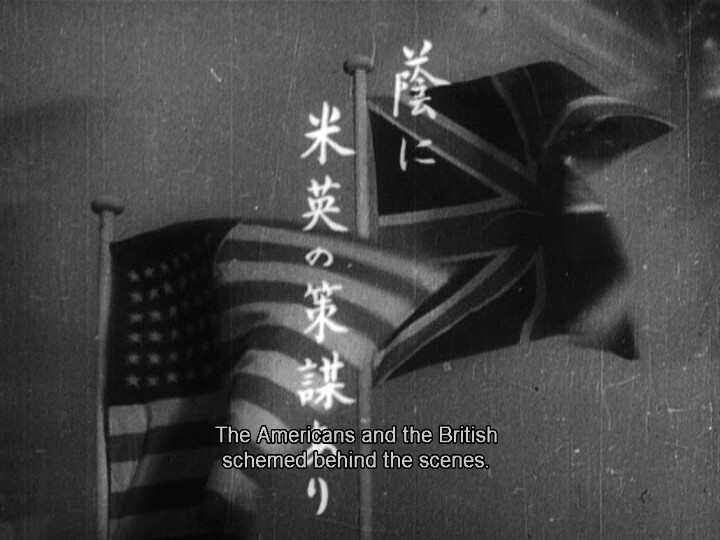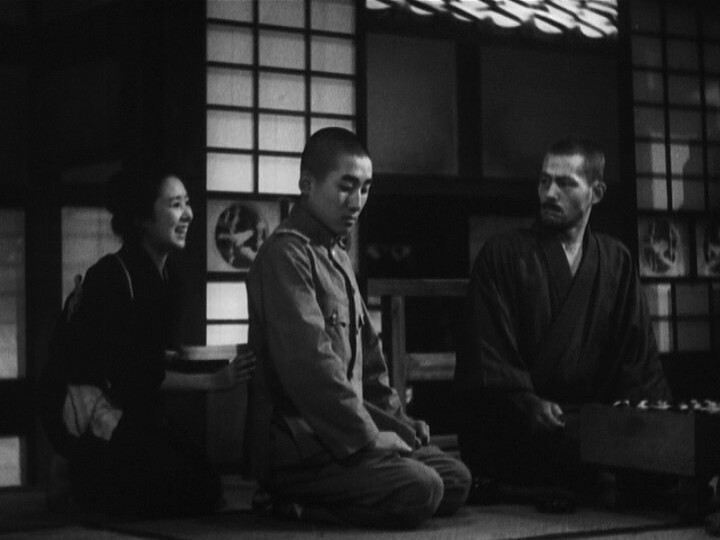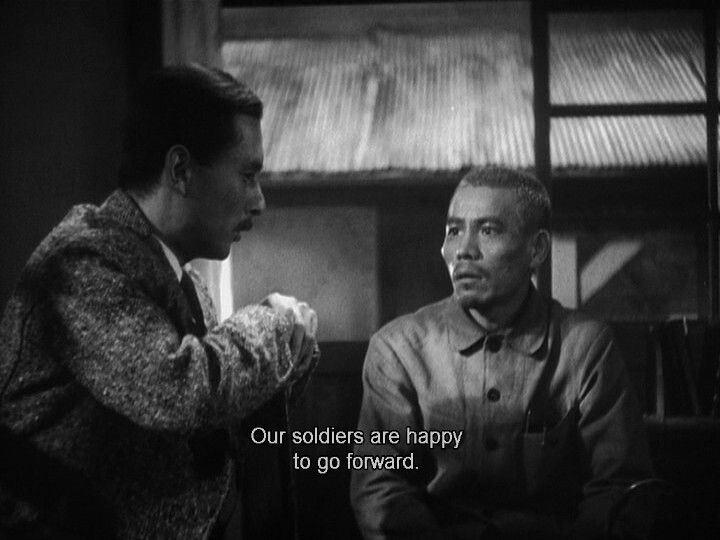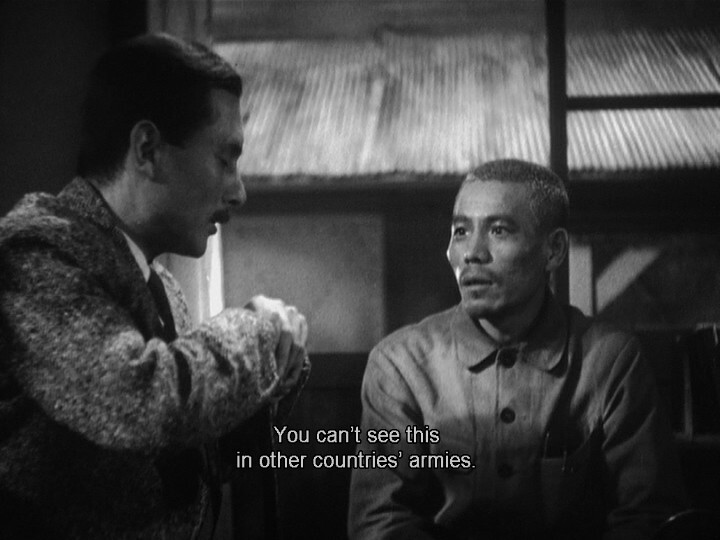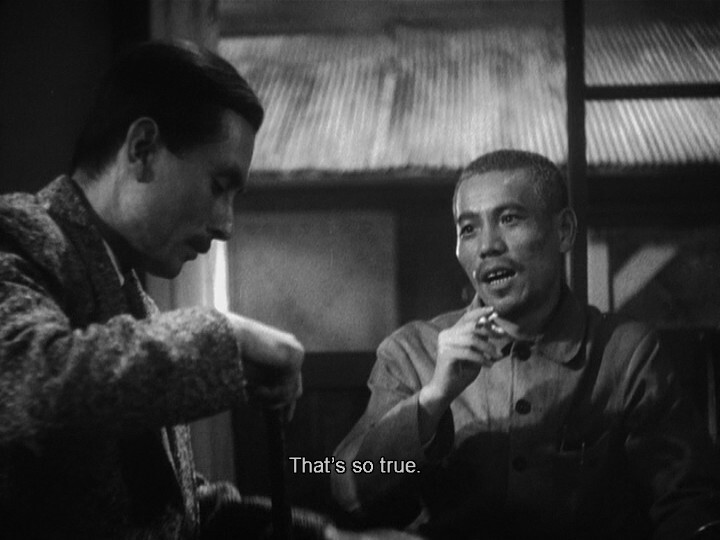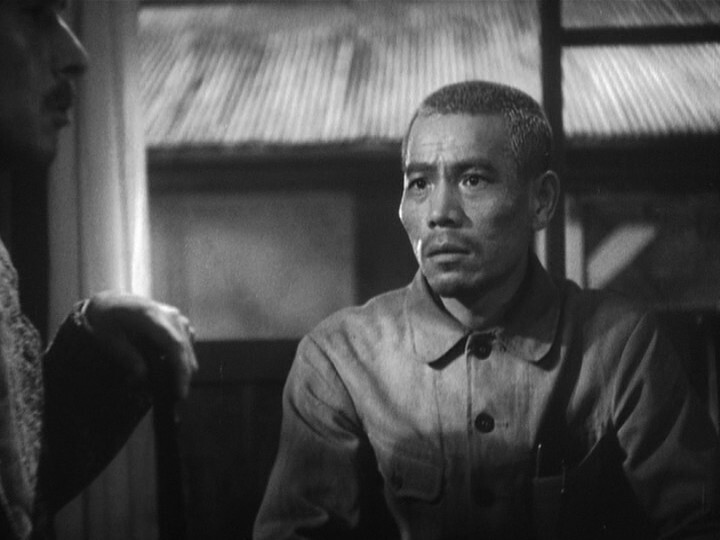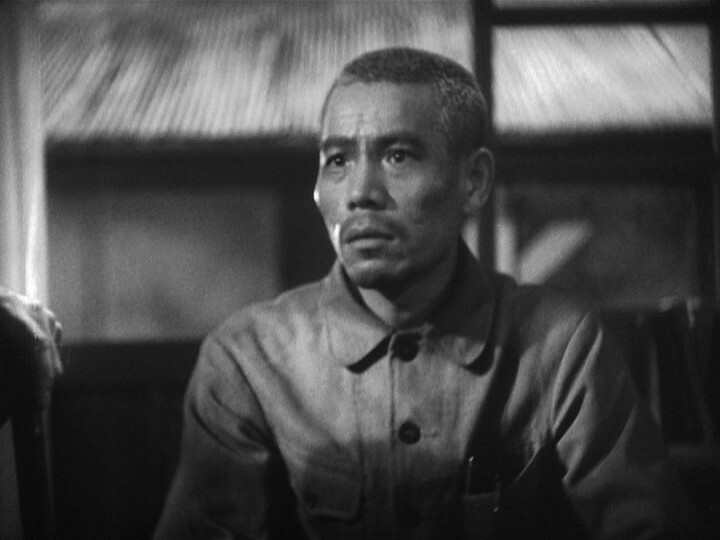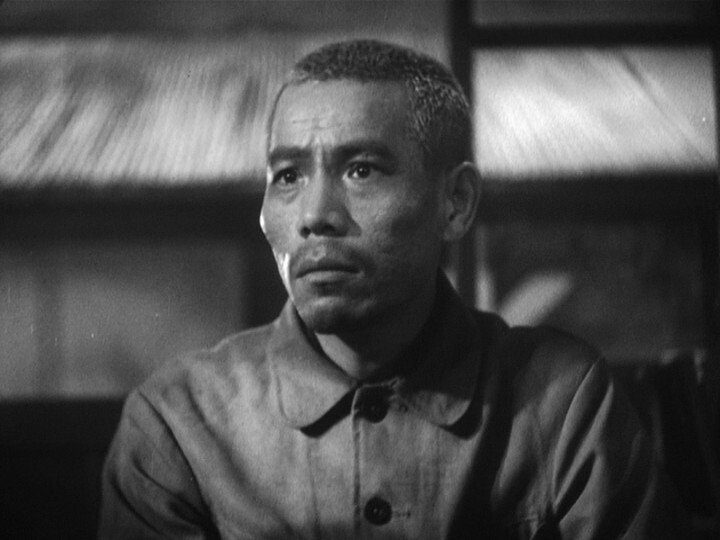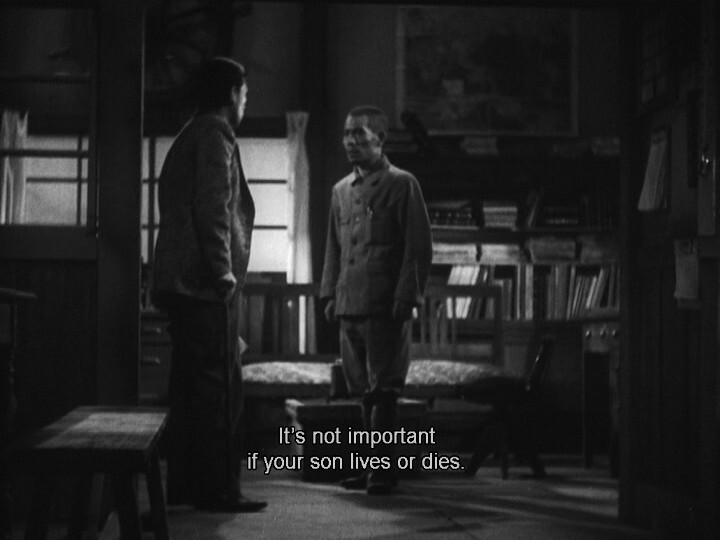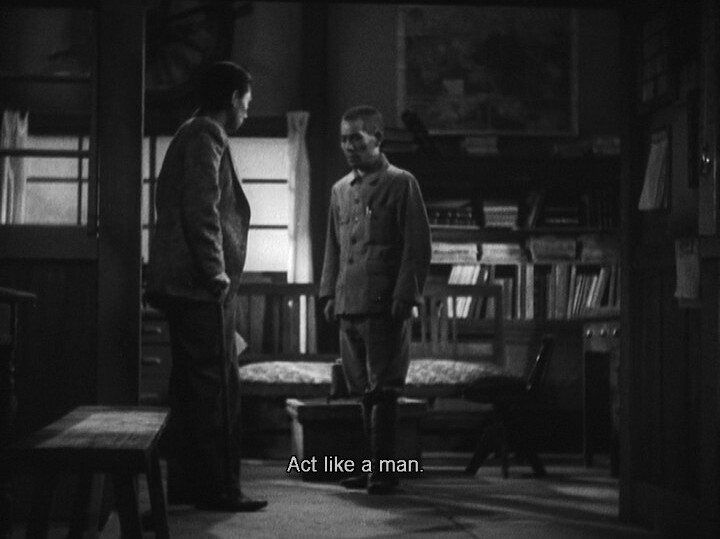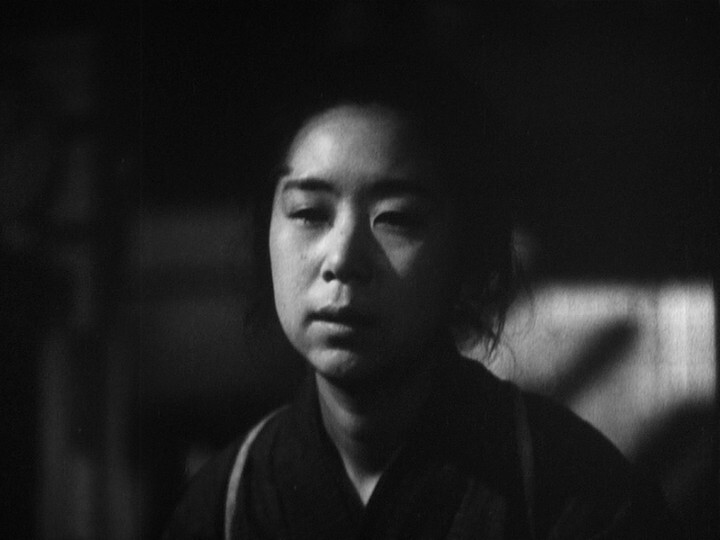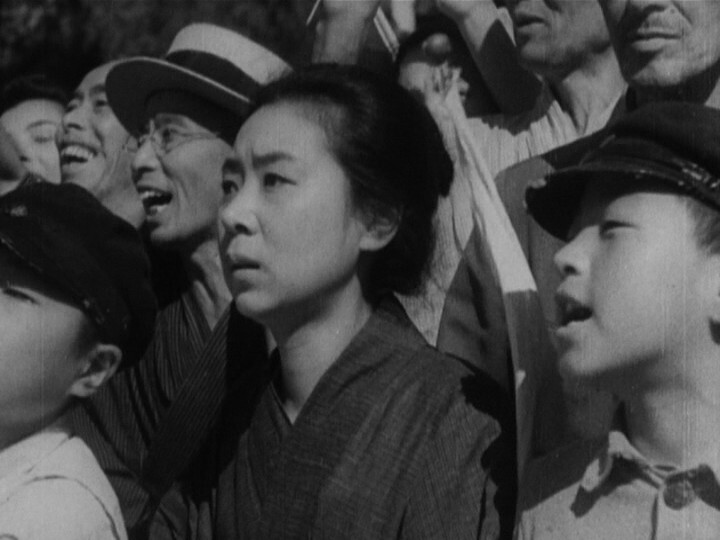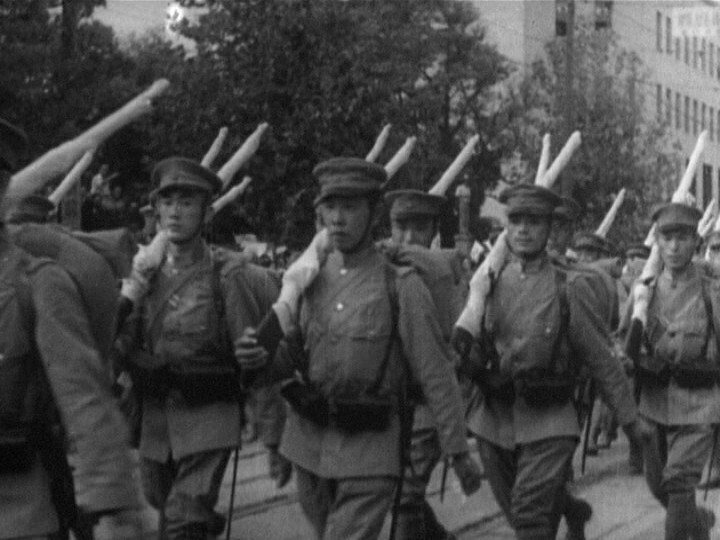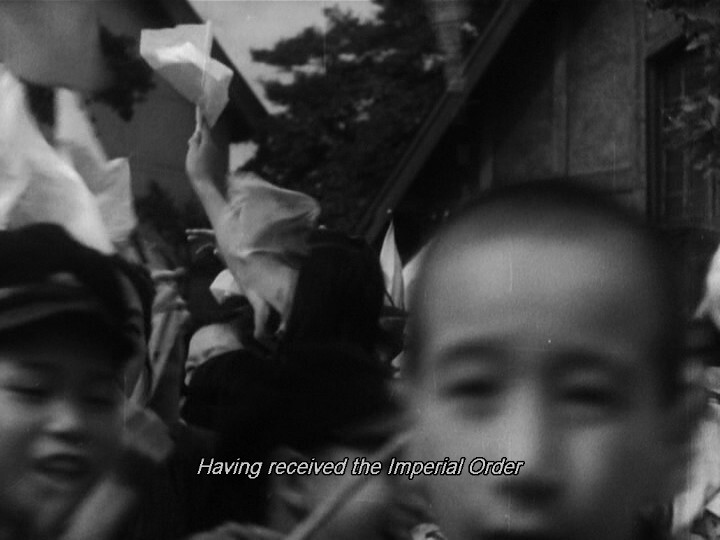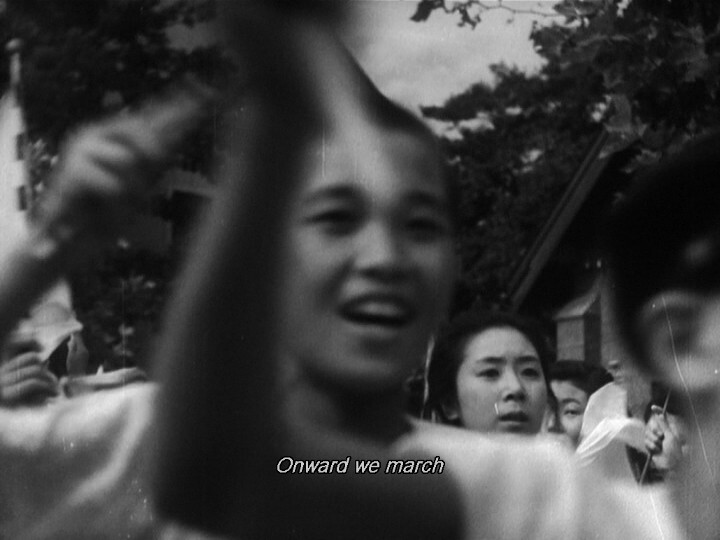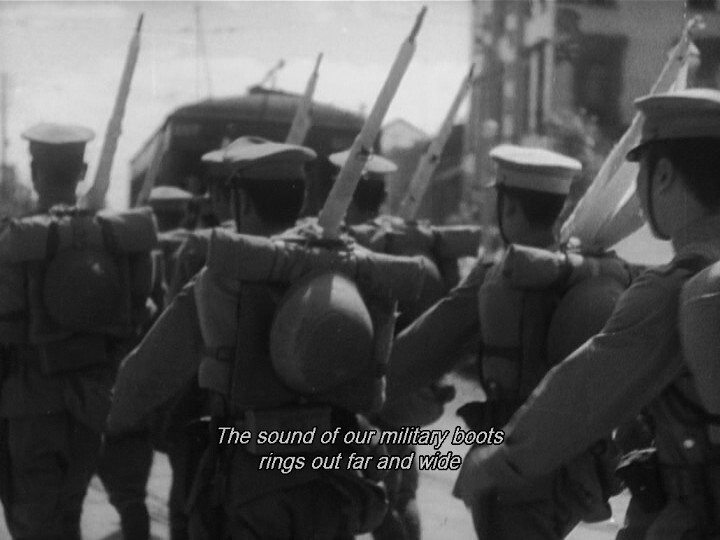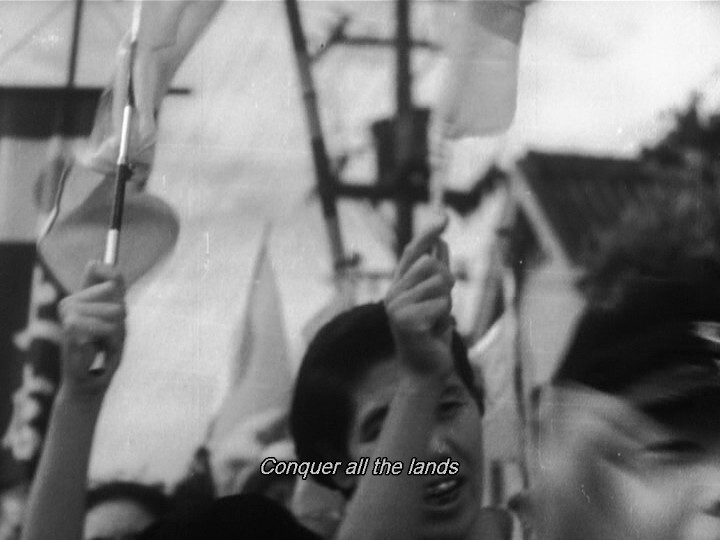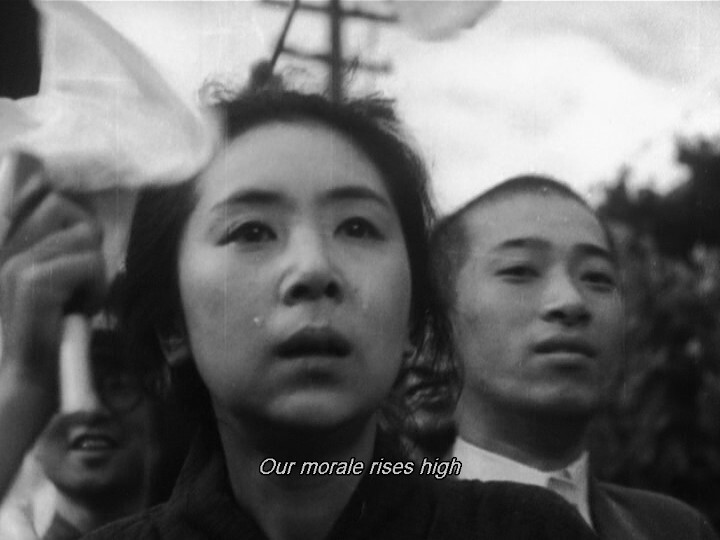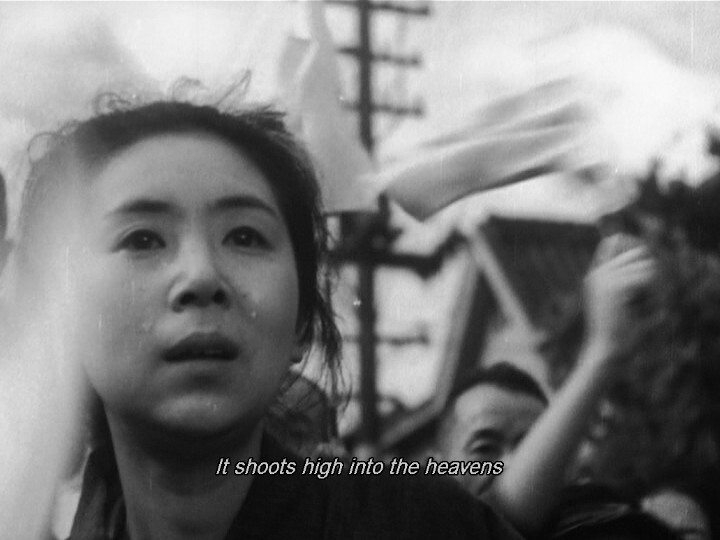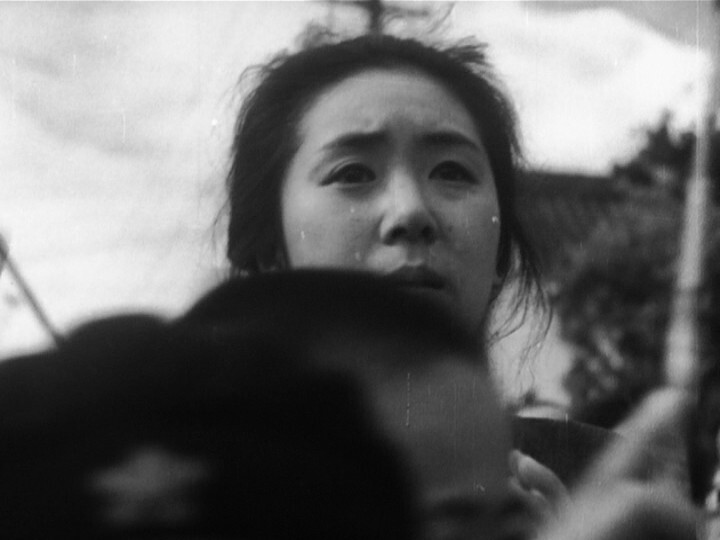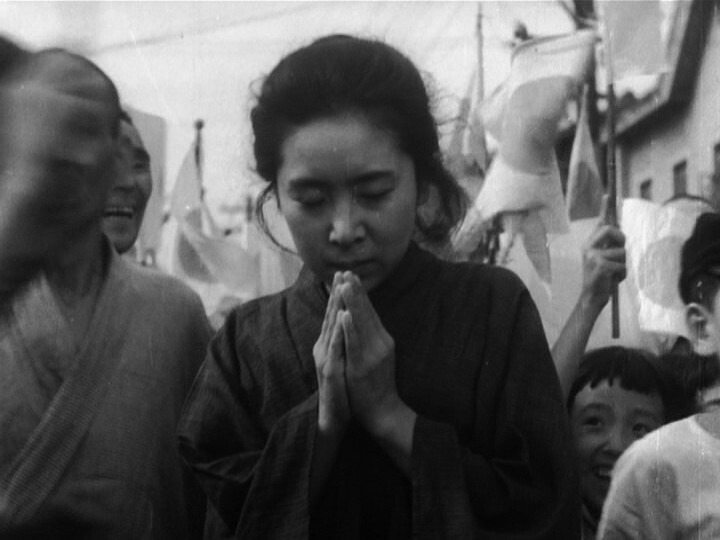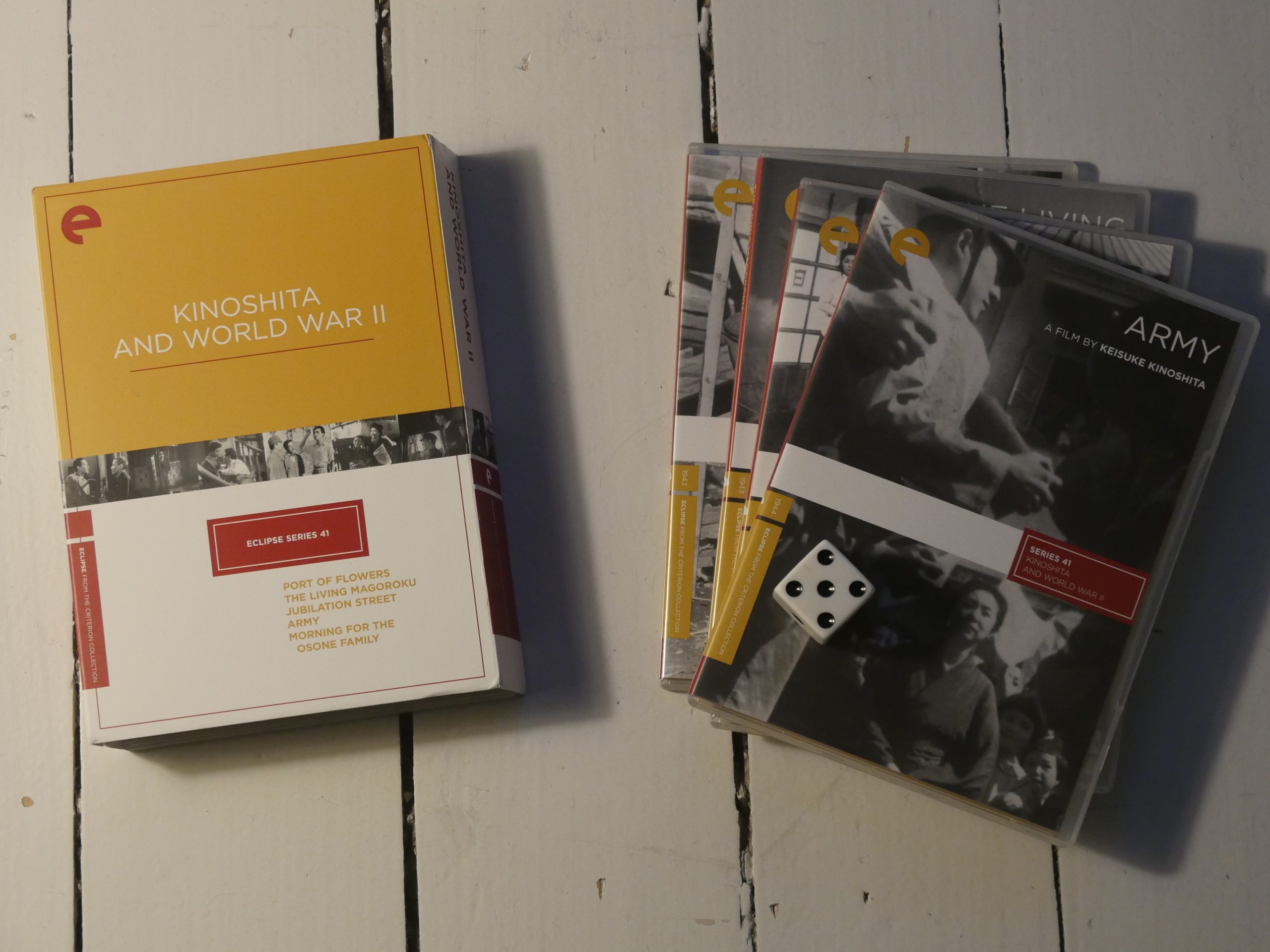Yes, this is another Japanese wartime movie. The previous two films in this box set have been pretty dire, but perhaps this will be more interesting, now that the war isn’t going as well as in 1942…
Yes indeed.
Oh, but we start off in Olden Times… Is this gonna be about how the Japanese army is eternal or something?
Well, that was abrupt… perhaps we’re gonna switch between time periods throughout the movie?
In any case, this is a lot more interesting than the first two films in this box set already.
This movie makes a really good case for the Japanese! The Japanese were right to attack Pearl Harbour after all!
Impressive brows.
This is an odd movie. They’ve built up these really compelling and interesting characters, and use them brilliantly in both emotional and goofy scenes, and it all works so well. But it’s meant to be a pro-war propaganda movie, right? So there’s these somewhat incongruous tiny things in between to emphasise that, and the tension between these scenes makes things… even more interesting?
That is, I was expecting this movie to suck, and instead it’s kinda wonderful.
Right, right. And then…
Were the censors asleep when OK-ing the script to this movie?
This movie is absolutely brilliant. The dialogue-free long final sequence is fantastic — the mother, who’d previously been a character that’s been sidelined somewhat, carries it all through to a three hanky ending. It’s amazing.
But how did he get away with doing basically an anti-war movie? In 1944?! I have to read the liner notes on the DVD…
Oh! The entire final long scene was just one sentence in the script: “The mother sees the son off at the station.” Which… er… was a bit of a fib? But the censors didn’t have anything to censor, so they filmed what ended up in the film. There was an outrage when the movie was shown, and a general showed up at Shochiku and accused the director of treason. He was not allowed to direct any further movies during the war.
Army. Keisuke Kinoshita. 1944.
This blog post is part of the Eclipse series.
